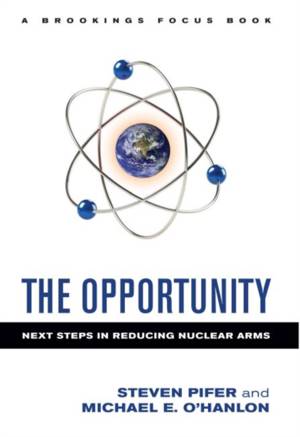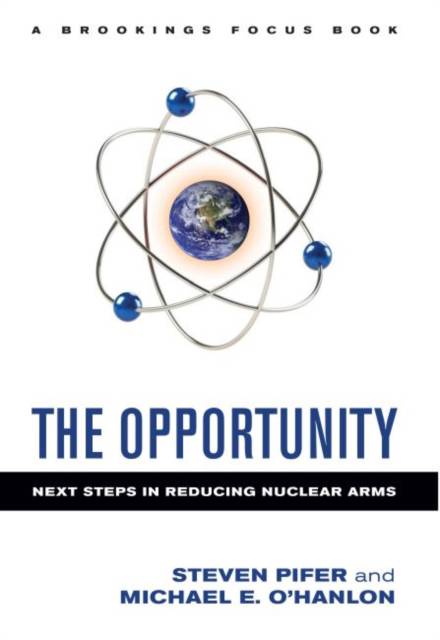
- Retrait gratuit dans votre magasin Club
- 7.000.000 titres dans notre catalogue
- Payer en toute sécurité
- Toujours un magasin près de chez vous
- Retrait gratuit dans votre magasin Club
- 7.000.0000 titres dans notre catalogue
- Payer en toute sécurité
- Toujours un magasin près de chez vous
Description
For some observers, nuclear arms control is either a relic of the cold war, or a utopian dream about a denuclearized planet decades in the future. But, as Brookings scholars Steven Pifer and Michael O'Hanlon argue in The Opportunity, arms control can address some key security challenges facing Washington today and enhance both American and global security.
Pifer and O'Hanlon make a compelling case for further arms control measures--to reduce the nuclear threat to the United States and its allies, to strengthen strategic stability, to promote greater transparency regarding secretive nuclear arsenals, to create the possibility for significant defense budget savings, to bolster American credibility in the fight to curb nuclear proliferation, and to build a stronger and more sustainable U.S.-Russia relationship.
President Obama gave priority to nuclear arms control early in his first term and, by all accounts, would like to be transformational on these questions. Can there be another major U.S.-Russia arms treaty? Can the tactical and surplus strategic nuclear warheads that have so far escaped controls be brought into such a framework? Can a modus vivendi be reached between the two countries on missile defense? And what of multilateral accords on nuclear testing and production of fissile materials for nuclear weapons? Pifer and O'Hanlon concisely frame the issues, the background, and the choices facing the president; provide practical policy recommendations, and put it all in clear and readable prose that will be easily understood by the layman.
Spécifications
Parties prenantes
- Auteur(s) :
- Editeur:
Contenu
- Nombre de pages :
- 242
- Langue:
- Anglais
- Collection :
Caractéristiques
- EAN:
- 9780815724292
- Date de parution :
- 11-10-12
- Format:
- Livre relié
- Format numérique:
- Genaaid
- Dimensions :
- 150 mm x 221 mm
- Poids :
- 435 g

Les avis
Nous publions uniquement les avis qui respectent les conditions requises. Consultez nos conditions pour les avis.






